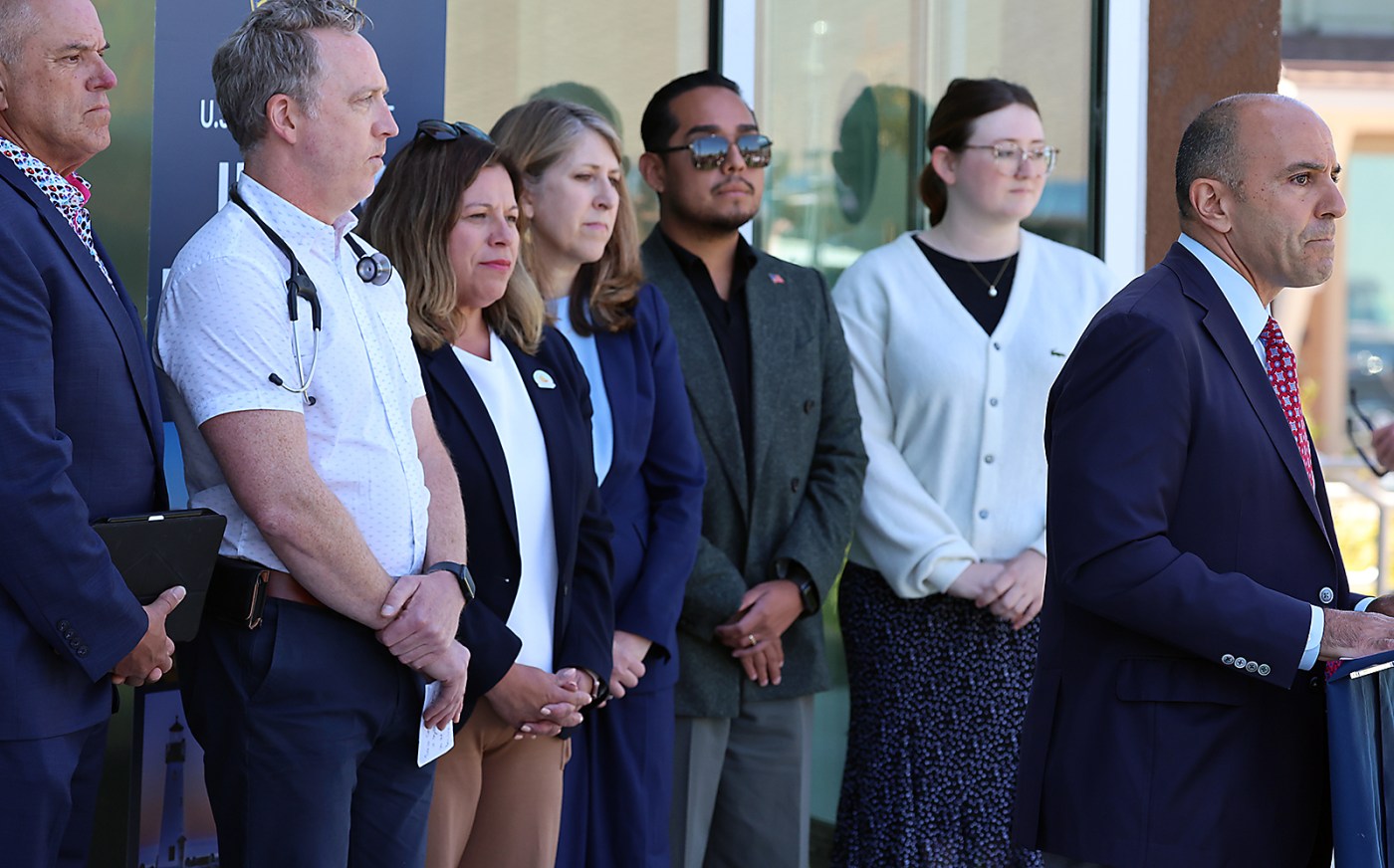Local Health Care Leaders Voice Concerns Over New Federal Legislation
In the wake of President Donald Trump signing a Republican-sponsored spending bill, local health care leaders in Santa Cruz County are already sounding the alarm about its potential impact on the community. The bill, which was passed by Congress last week, has been criticized for its significant cuts to essential health care programs, including Medicaid and the Affordable Care Act.
Support kami, ada hadiah spesial untuk anda.
Klik di sini: https://indonesiacrowd.com/support-bonus/
Rep. Jimmy Panetta recently held a press conference in Live Oak, bringing together nonprofit and government agency health experts to discuss the implications of the legislation. Dr. Casey KirkHart, medical director of Santa Cruz Community Health, emphasized that the bill, often referred to as the “Big Beautiful Bill,” is anything but beneficial. He described it as a “backward facing piece of legislation” that threatens vital services and jobs in the community.
The Impact of the Spending Bill
The nearly 900-page bill, signed by Trump on July 4, includes massive spending reductions to Medicaid and the Affordable Care Act to fund approximately $4.5 trillion in tax cuts, primarily benefiting wealthy households. According to the nonpartisan Congressional Budget Office, this legislation could lead to 12 million Americans losing health insurance coverage due to bureaucratic barriers to Medicaid access, slashing of retroactive coverage, and capping of provider tax credits critical to California’s Medi-Cal system.
In Santa Cruz County alone, almost 71,000 residents are Medi-Cal enrollees, with about 37,000 of those beneficiaries, including those utilizing the Affordable Care Act, at risk of losing coverage. The consequences for the local health care landscape could be severe, including strained budgets for health care providers, longer wait times at local hospitals, patients forgoing preventative care, and higher premiums for private insurance holders.
Support us — there's a special gift for you.
Click here: https://indonesiacrowd.com/support-bonus/
A Call for Action
Dr. KirkHart highlighted the decades of work done to expand health care and essential services, stating that this legislation undermines those efforts. The event was held outside a health campus in Live Oak shared by Santa Cruz Community Health and Dientes Community Dental—two organizations serving communities that stand to suffer most from the federal actions.
Dientes warned that the bill will cause a decline in dental care access, leading to tooth decay and negative health outcomes. Additionally, the Supplemental Nutrition Assistance Program (CalFresh) faces steep cuts that could deny millions access to reliable meals.
Rep. Panetta called the bill a “self-inflicted wound” that will hurt working families across the country. He argued that the changes are meant to address government waste, fraud, and abuse while providing billions for Trump’s ongoing immigration crackdown. The legislation includes $350 billion for the U.S.-Mexico border wall, the hiring of 10,000 new Immigration and Customs Enforcement officers, and the establishment of 100,000 migrant detention facility beds.
Budget Priorities and Political Motivations
Panetta pointed out that the cuts come in response to tax breaks first passed by a Republican Congress during Trump’s first term in 2017. He noted that these tax breaks amount to $4 trillion for billionaires and corporations, adding $3.8 trillion to the national debt and $3.4 trillion to the deficit over the next 10 years. He also criticized the 80-hour-a-month work requirements and additional eligibility verifications, calling them punitive and ineffective.
Dr. Devon Francis, chief medical officer at Salud Para La Gente, stated that the federal cuts won’t result in turning community members away from care, but the rate of uncompensated care will increase dramatically. This could lead to more overcrowding in emergency departments, reduced staffing, higher premiums for private insurance, or even reducing service lines altogether.
Timeline and Future Implications
While the picture of how local services could change is relatively clear, the timeline for when they will do so remains uncertain. Santa Cruz County Health Officer Lisa Hernandez mentioned that local officials expect the California Legislature to call a special session this fall after the federal budget is finalized. Lawmakers will then decide if the state’s budget needs adjustment to fill the gap.
Assistant County Executive Officer Nicole Coburn added that the county has established a special team to monitor developments. She explained that many impacts trickle down from the federal government to the state and then to the county, and the county may need to hold a special session if there are local impacts.
Rep. Panetta concluded by emphasizing that the bill’s priorities are politically motivated, noting that tax cut provisions for wealthy individuals will be immediately enacted, while many of the health care changes won’t be actualized until after the 2026 midterm congressional elections. He posed a critical question: How much longer can the greatest debtor in the world remain the greatest nation in the world?







